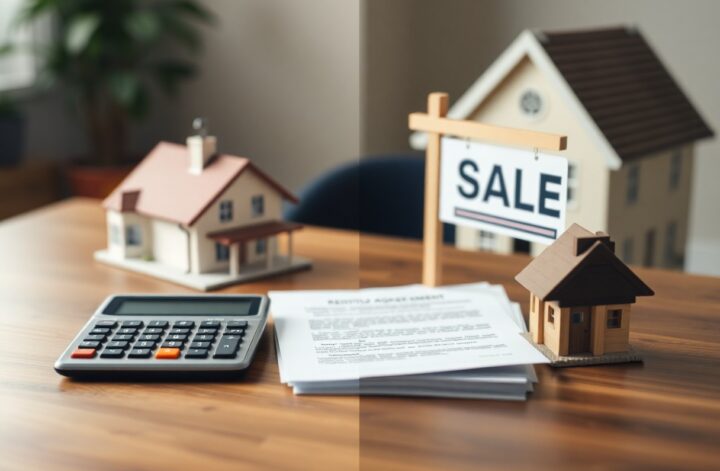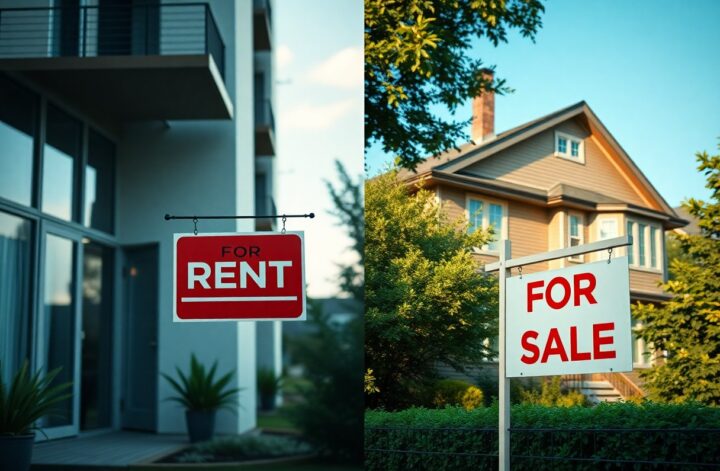There’s a big decision ahead of you when it comes to choosing between renting and buying a home. Understanding which option is cheaper can save you money and hassle in the long run. In this guide, you will learn how to calculate the costs involved in both renting and buying. By comparing these figures, you’ll make an informed choice that suits your financial situation and lifestyle. Let’s dive in and explore the numbers together!
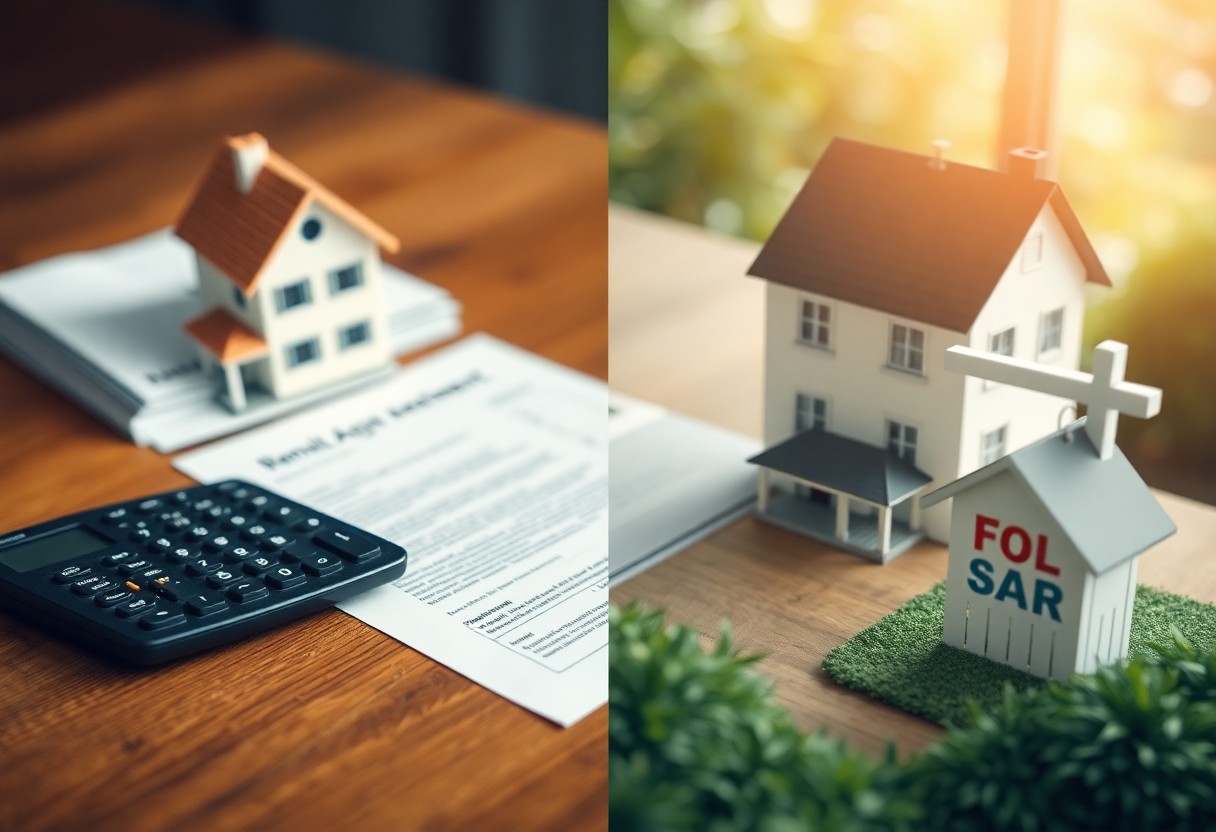
Key Takeaways:
- Calculate total costs: Look at all costs for both renting and buying, including monthly payments, maintenance fees, taxes, and insurance.
- Consider your lifestyle: Think about how long you plan to stay in one place. Renting might be better for shorter stays, while buying could be more cost-effective if you’re there for the long term.
- Research the market: Understand local real estate trends to find a better deal, whether renting or buying. A good deal can significantly impact your savings.
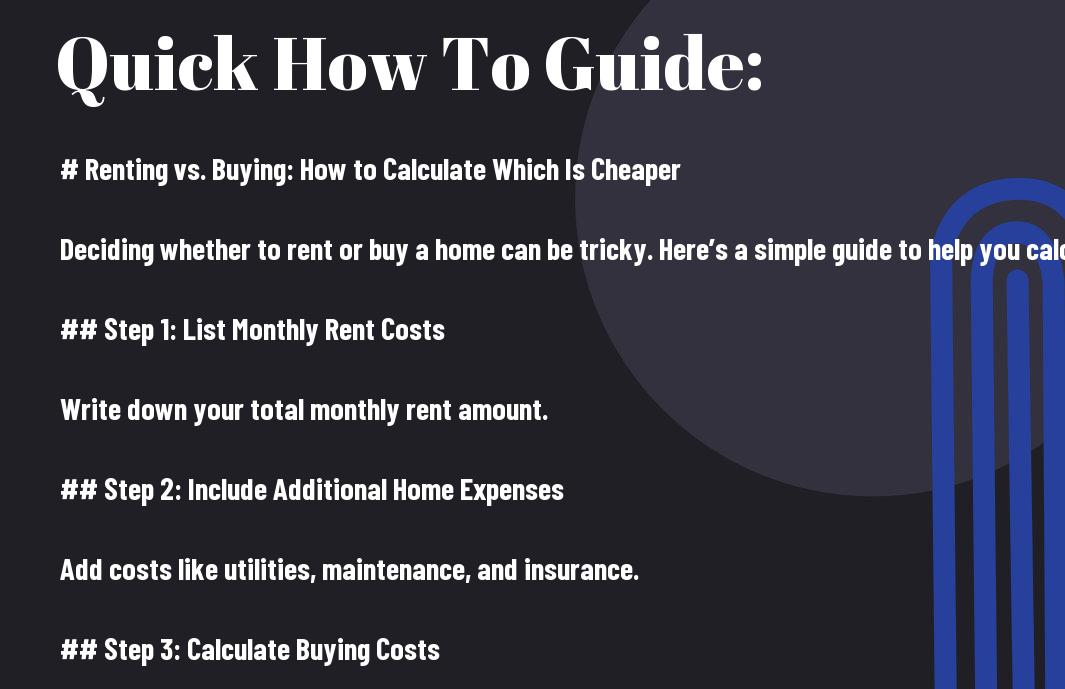
Understanding the Basics
The decision to rent or buy a home is significant and can affect your finances for years. It’s important to understand both options before making a choice. In this section, you will learn what renting and buying entail, along with their pros and cons. This understanding will help you determine which is the better option for your financial situation.
Renting Explained
One of the simplest ways to secure a place to live is renting. When you rent, you pay a monthly fee to use someone else’s property. Typically, rental agreements last for a year, but you can find shorter or longer terms as well. Renting offers flexibility, as it allows you to move without the responsibilities of homeownership. However, the monthly rent does not build equity, meaning you won’t own the property.
Buying Explained
For many people, buying a home is the ultimate goal. When you buy a home, you invest in a property that can grow in value over time. You pay a significant amount upfront, usually through a mortgage, and continue making payments until the house is entirely yours. While homeownership provides stability and potential financial gain, it also comes with responsibilities like maintenance and property taxes.
Understanding the buying process is important. When you purchase a home, there are additional costs to consider, such as down payments, closing costs, and ongoing maintenance. You might also face fluctuations in the housing market, which can affect your home’s value. Taking these factors into account will help you assess whether buying is the right choice for you compared to renting. Make sure to consider your long-term plans and financial goals while making this important decision.
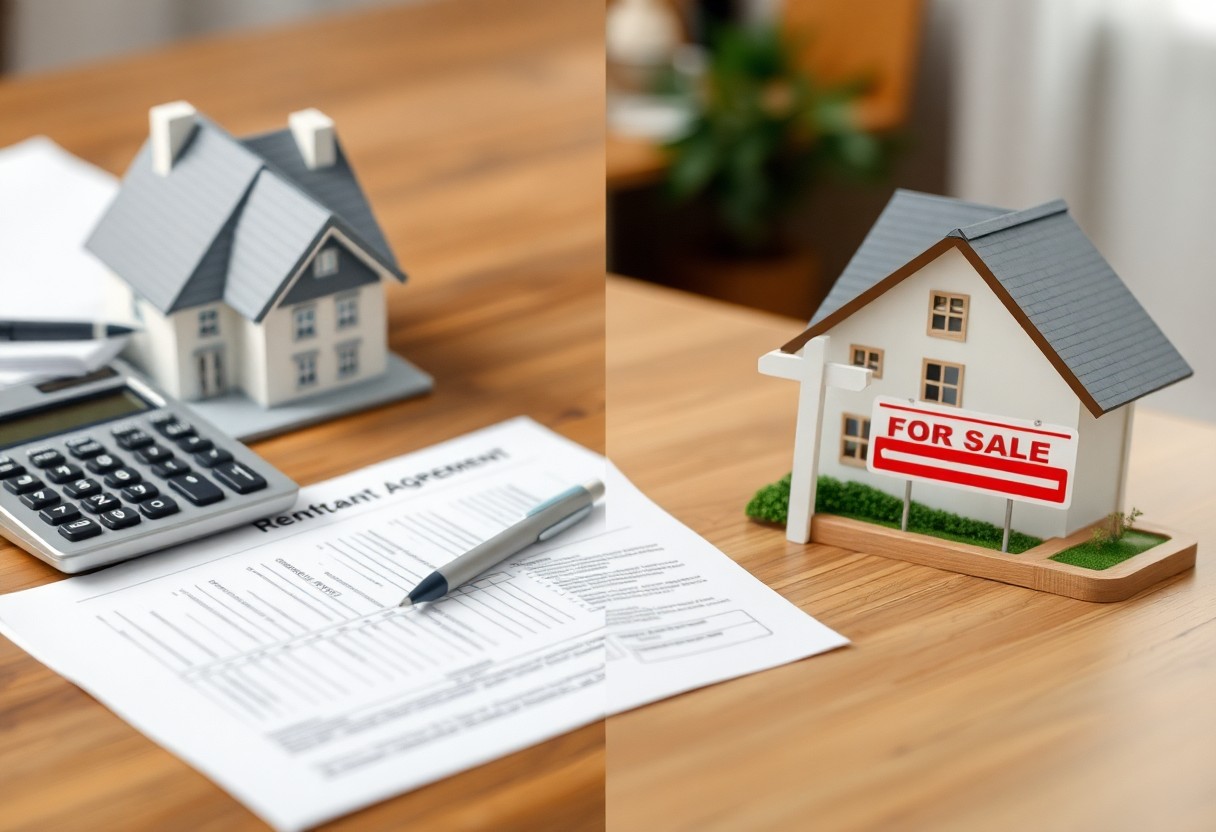
Key Factors to Consider
While deciding between renting and buying a home, several key factors can impact your choice. To make the best decision for your situation, consider the following:
- Your budget and financial goals
- The local real estate market
- Your future plans and stability
- Property maintenance responsibilities
Knowing these factors will help you evaluate which option suits you better.
Monthly Costs
With renting, your costs are typically more straightforward. You usually pay a monthly rent along with utilities. On the other hand, owning a home includes mortgage payments, property taxes, insurance, and maintenance costs. Understanding these expenses will help you calculate your monthly financial commitments.
Long-term Investment
To decide if buying is right for you, consider the long-term benefits. Owning a home can build equity over time, which means that as you pay off your mortgage, you increase your ownership stake in the property. This can lead to financial security and increase your wealth.
This option may offer you more stability and potential financial growth compared to renting. If property values rise, your investment can appreciate, offering greater returns in the future. Weighing these aspects may help you see how homeownership can provide you with more than just a living space.
How to Calculate Costs
Your decision to rent or buy a home involves many costs. Understanding these expenses can help you make the best choice. Start by comparing your monthly rent with your mortgage payments. Then, factor in all additional costs that come with owning a home. By analyzing these numbers, you will gain a clearer picture of what works for you financially.
Rent vs. Mortgage Payments
If you are considering renting or buying, compare your monthly rent with your potential mortgage payment. A mortgage payment often includes principal, interest, property taxes, and insurance. This total can be higher or lower than your rent. Take the time to calculate these amounts to see which option fits your budget better.
Additional Expenses
Additional costs can sneak up on you when buying a home. These may include maintenance, homeowner association (HOA) fees, property taxes, and more. As a renter, many of these costs are usually covered by your landlord, making it important to consider them when deciding to buy.
To make an informed decision, you should list all expenses associated with homeownership beyond the mortgage. For instance, annual maintenance costs can average 1% of your home’s value. If your home costs $300,000, you might spend around $3,000 each year on upkeep. Including these additional expenses in your calculations will give you a full picture of the costs involved in owning a home.
Tips for Making the Decision
Unlike jumping into a quick decision, take your time when considering renting versus buying. Use these helpful tips:
- Calculate your total costs for both options.
- Consider how long you plan to stay in one place.
- Think about your lifestyle and work situation.
- Look into local housing markets and trends.
Knowing your priorities will help you make the best choice. For more insights, check out this Is there a formula to determine if renting or owning is … discussion.
Evaluating Personal Finances
There’s no one-size-fits-all answer, so digging into your finances is important. Start by listing your income and expenses. Look at your savings and any existing debts. Understanding your budget will help you see what you can comfortably afford, whether renting or buying.
Considering Future Plans
Decision-making becomes easier when you think about your future. Are you planning to start a family, change jobs, or relocate? These factors can dramatically influence your choice.
Plus, your future plans can affect how stable your housing situation needs to be. If you’re likely to move in the next few years, renting may offer more flexibility. If you plan to settle down, buying could be a better investment.
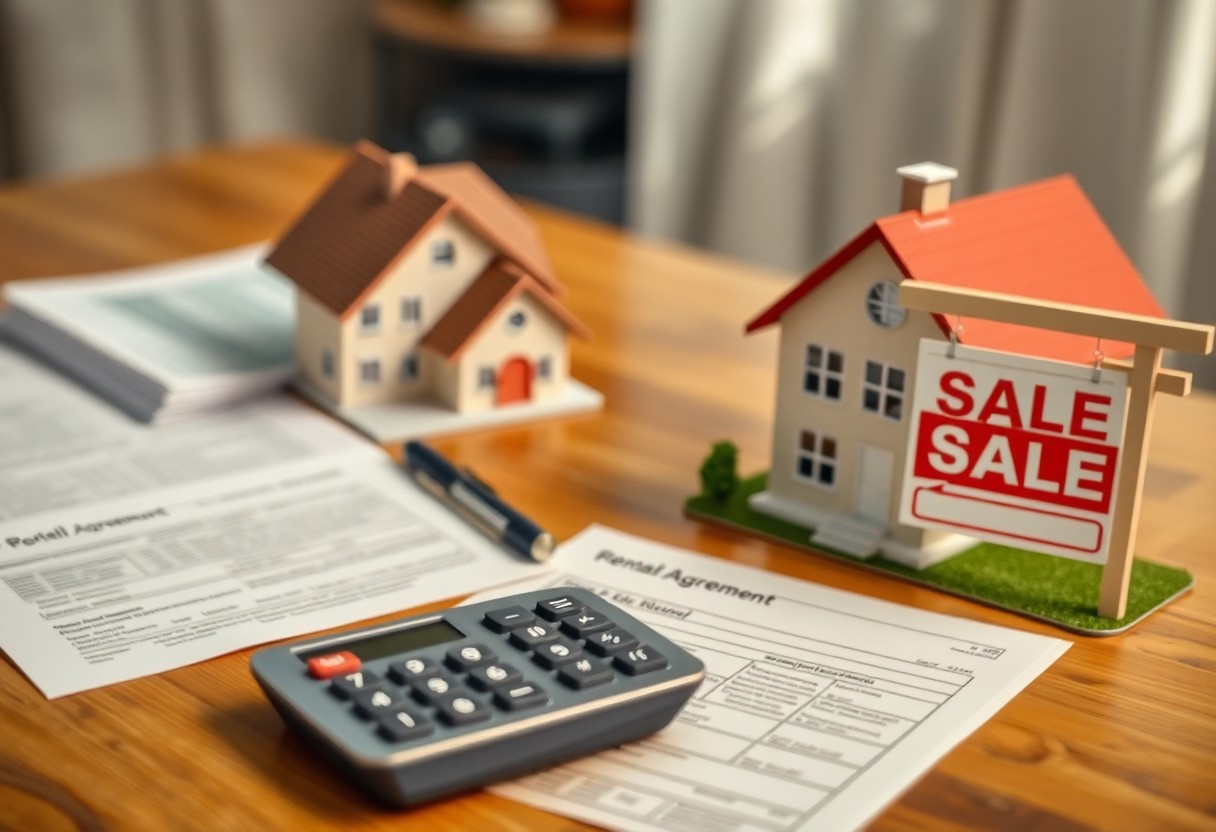
Notable Pros and Cons of Renting
Pros | Cons
— | —
Flexibility in moving | No equity building
Lower upfront costs | Possible rent increases
Less responsibility for maintenance | Limited personalization options
Lesser financial commitment | Restrictive lease terms
Access to amenities | Less stability in housing
Better for short-term living | Landlord rules to follow
Potentially cheaper in urban areas | Can feel less like home
No property taxes | Less long-term investment
Easier to relocate for jobs | Possible lack of long-term security
Community support from neighbors | Costly move-in fees
Flexibility and Stability
Flexibility is one of the biggest advantages of renting. You can easily move to a new location without the hassle of selling a house. If job opportunities arise or your personal situation changes, you can adjust your living arrangements quickly. This is especially helpful for young professionals or students who might need to relocate often.
Maintenance Responsibilities
Some responsibilities come with renting, especially regarding maintenance. As a renter, you typically aren’t responsible for major repairs. Your landlord should handle issues like plumbing or electrical problems. This can be a significant relief, allowing you to focus on your daily life rather than worrying about home repairs.
Plus, this lack of maintenance duty can help you save money. When things break, it’s usually up to your landlord to fix them. This means you won’t have to spend your budget on repairs. Additionally, many rentals include amenities like landscaping or pool maintenance, taking even more responsibilities off your hands. This can make renting an attractive option if you prefer a stress-free living environment.
Pros and Cons of Buying
Once again, it’s important to weigh the pros and cons before deciding to buy a home. Below is a table that highlights the benefits and drawbacks of homeownership.
| Pros | Cons |
|---|---|
| Builds equity over time | High upfront costs |
| Stability in payments | Market fluctuations affect value |
| Customization of your space | Maintenance responsibilities |
| Potential tax benefits | Less mobility |
| Sense of community | Long-term commitment |
| Opportunity for rental income | Insurance and property taxes add up |
| Increases net worth | Potential for unexpected repairs |
| Stability for family | Time-consuming process |
Building Equity
Buying a home allows you to build equity, which is the difference between your home’s value and what you owe on your mortgage. As you pay down your loan, your equity increases. Over time, your property may also appreciate in value. This means that buying a home can be a good investment if the market is stable or growing.
Commitment and Costs
If you decide to buy, you need to be ready for a long-term commitment and various costs. These include your mortgage payment, taxes, insurance, and maintenance fees. Owning a home means you take on these financial responsibilities, which can be more than just monthly payments.
Equity in a home comes with both a commitment to its upkeep and ongoing costs. You’ll need to budget for repairs, property taxes, and insurance. These can fluctuate based on the condition of your home and local market conditions. Understanding these costs will help you make better decisions about your financial future when buying a home.
Summing up
Now that you understand the differences between renting and buying, it’s clear that calculating which option is cheaper involves various factors. Take time to assess your finances, consider your future plans, and review local market conditions. Using tools like the Rent vs. Buy Calculator | Is it better to rent or buy? can provide valuable insights. Ultimately, you want to find the option that best fits your lifestyle and financial goals.
FAQ
Q1: What factors should I consider when deciding between renting and buying a home?
A: When choosing between renting and buying, consider the following factors:
- Monthly Costs: Compare your monthly rent with potential mortgage payments.
- Location: Look at where you want to live. Some areas may have high rents but affordable homes.
- Time Frame: Think about how long you plan to stay. If it’s less than 5 years, renting might be better.
- Maintenance Responsibilities: Renters usually don’t pay for home repairs. Homeowners do.
- Investment Potential: Buying a home can be a good long-term investment, unlike renting.
Q2: How can I calculate my monthly costs for renting versus buying?
A: To calculate your monthly costs:
- For Renting: Take your monthly rent amount. Add utilities, renter’s insurance, and any other fees.
- For Buying: Start with your expected mortgage payment. Include property taxes, insurance, and maintenance costs.
This will give you a clearer picture of your monthly expenses for both options.
Q3: Are there hidden costs associated with buying a home?
A: Yes, buying a home can come with several hidden costs, including:
- Closing Costs: Fees for processing your mortgage.
- Home Inspection: A check to ensure the home is in good condition.
- Maintenance: Regular upkeep of your home, like repairs and lawn care.
- Homeowners Association Fees: Fees for services in neighborhoods with shared amenities.
Make sure to factor these into your budget.
Q4: Can renting ever be cheaper than buying a home?
A: Yes, renting can be cheaper than buying, especially in expensive markets. Rent tends to be lower than monthly mortgage payments in some areas. Additionally, renting does not involve maintenance or property taxes. It’s important to evaluate local market conditions when making your decision.
Q5: How can I determine which option is best for my situation?
A: To find out which option works for you, consider the following steps:
- Assess Your Finances: Calculate your income, savings, and debts.
- Consider Your Lifestyle: How often do you move? Do you want to settle down?
- Research Your Market: Look up housing trends in your area.
- Use a Rent vs. Buy Calculator: These tools help compare costs based on your specific situation.
By doing this, you’ll make an informed choice.

